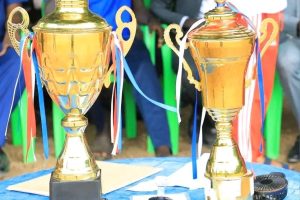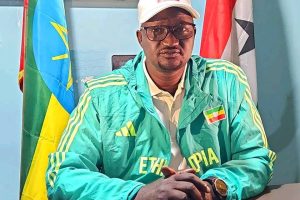By Peter Pal
Since Amb. Nhial Deng Nhial declared his rebellion against the Sudan People Liberation Movement/ Army (SPLM/A) under President Salva Kiir’s leadership, various analysts raised eyebrows about what the SPLM/A has become and to what extent would the South Sudan Salvation Movement (SSSM) be able to ease the rising ethnic-political tensions and restore peace in South Sudan?
What the SPLM/A has become.
- After carefully reading, listening to and observing the public presentation made by Amb. Nhial Deng Nhial, I learnt that the SPLM/A that President Salva Kiir inherited after the death of Dr Garang in 2005 exhibit divisions among its oblivious cadres.
- These cadres include G10 members, people with ego and resentment, those who repeatedly refused and ignored the counsel provided by Mama Nyandeng and FVP Dr Riek Machar to prioritise nation building.
- Instead to embark on the resuscitation of the party’s vision, they insisted on escalating unnecessary politics, trying to elbow out those who advocate for transparency and democratization of the party.
- Such an approach, as we witnessed, created an open quarrel among the cadres and undermined peace, unity of our people and the establishment of a workable system of governance in South Sudan.
- Common sense dictates that the conduct of the SPLM since 2006 displayed Sudan’s colonial legacies and communist orientations, i.e. authoritarianism. These contradictions transformed SPLM/A to operate as a franchise entity, deviating from its core moral and public obligations.
- The inability of these cadres to lead the nation responsibly as well as the SPLM/A was exposed by the Arusha Accord in 2015.
- Will South Sudan achieve peace under the guidance of the SPLM leaders?
- It’s possible only when the SPLM/A changed courses, prioritized peace and the unity of South Sudanese. Otherwise, the SPLM will remain to be the source of our country’s division.
To what extent would the South Sudan Salvation Movement (SSSM) be able to ease the rising political/ethnic tensions and restore peace in South Sudan?
- The SSSM under Amb. Nhial Deng’s leadership will not deliver the desired reforms in South Sudan. However, his reaction exposed the frictions, dissatisfaction and the frustration amongst seniors’ members of the SPLM/A about President Kiir’s leadership.
- Can we say Amb.Nhial Deng has or lacks all it takes to change the political landscapes in South Sudan?
- Nhial Deng is a veteran politician with integrity, good communicator, progressive peacebuilder and charismatic leader. However, he lacks conviction and his practices embodied being a malleable person who has the tendency to operate as a situational politician. As such, he will struggle to lead and bridge the ethnic-political division in South Sudan.
- Furthermore, I imagined that the SSSM would not engage in an open field contest with the SPLM/A. Rather than endeavouring to undermine SPLM/A’s functions by engineering public uprising and striving for the reunification of the SPLM/A through backdoor party dialogues.
- Such an approach, one would recall, speaks to the political applications used by G10 members to exploit the 2018 peace agreement.
- Regardless however they might reorganise themselves, they will not bring the desired reform in South Sudan.
- It is now evidence that these G10 members, Amb. Nhial included, were not oriented to lead but to follow. That is why President Kiir has been taking them for a ride on a wrecked canoe even when they knew it’s not repairable. They are opportunists and hypocritical leaders who have failed South Sudan by not implementing the Arusha Accord and the R-ARCSS.
- Finally, I observed that the SSSM and United People’s Alliance (UPA) will operate as conduit platforms where these leaders will continue to exploit the public emotions and international community’s efforts.
- Obviously, Amb. Nhial and his colleagues demonstrated being loyal members to the SPLM/A but they appeared not to know what the movement represents after the death of Dr Garang in 2005. You would concur with me that the SPLM/A led by Kiir is too deformed to be reformed by the SSSM and UPA.
What should he be doing?
- If Amb.Nhial Deng genuinely advocates for reforms, he must stand alone or join the main opposition party, the IO to advocate for similar courses in South Sudan.
- Supporting the implementation of the R-ARCSS as such framework paves the way to achieving a peaceful resolution of the conflict in South Sudan.
- Denounce the ongoing political trial of the FVP Dr Riek Machar and advocate for his release and other co-accused political leaders of IO.
- Otherwise, Amb. Nhial Deng and SSSM will be used as a rubber stone by others to achieve their political goals.
Thank you for taking the time to read this article. Peter Pal is a South Sudanese from Upper Nile. He is currently based in Australia






